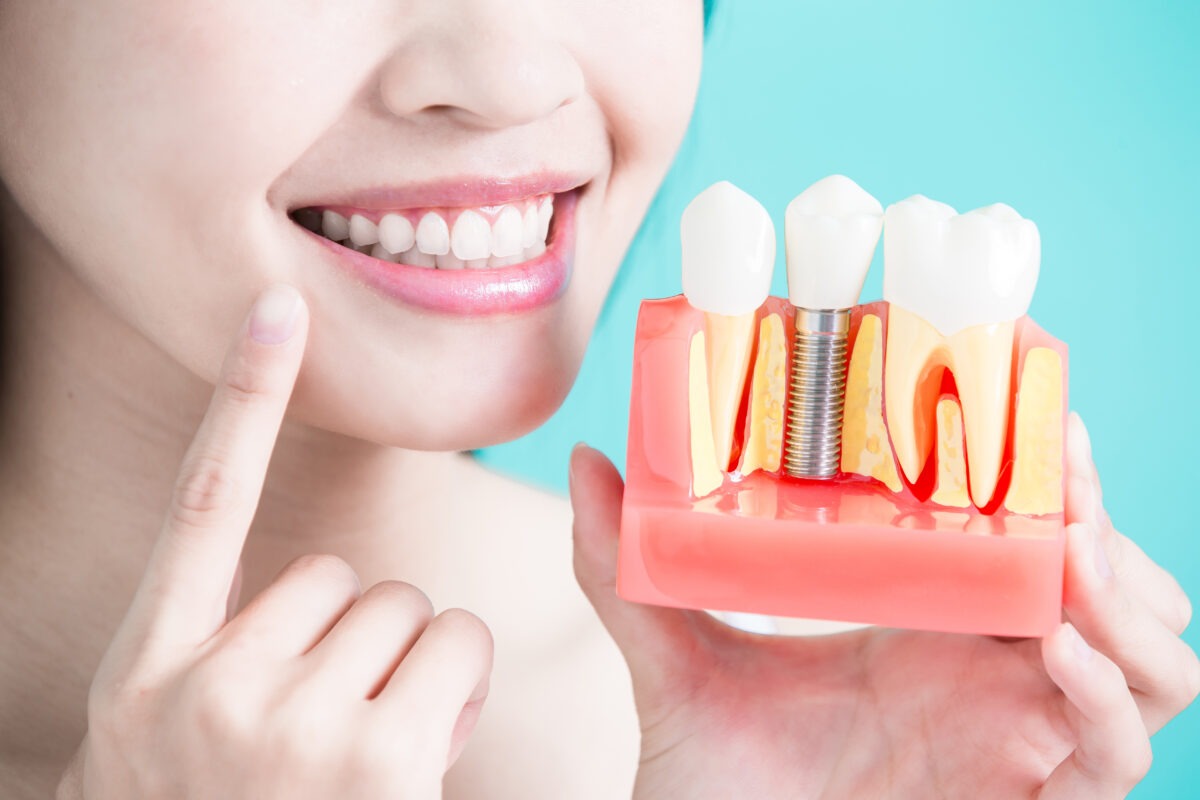The Role of Dental Implants in Periodontal Rehabilitation

The Role of Dental Implants in Periodontal Rehabilitation
Dental implants are artificial tooth roots that are used to replace missing teeth. They are typically made of titanium, which is a bio compatible material that integrates with the surrounding bone in a process called osseointegration. This creates a strong and stable foundation for a replacement tooth or bridge.
The dental implant itself is a small, screw-shaped post that is surgically inserted into the jawbone. Once the implant is placed, a healing process begins that can take several months, during which time the implant fuses with the bone in the jaw.
After the implant has integrated with the bone, a small connector called an abutment is attached to the top of the implant. This abutment connects the implant to the replacement tooth or bridge, which is custom-made to match the color, shape, and size of the patient’s natural teeth.
Dental implants are a popular and effective option for people who have lost one or more teeth due to injury, decay, or periodontal disease. They provide a durable and long-lasting solution that can improve the appearance and function of the teeth, while also preventing bone loss in the jaw.
Periodontal Rehabilitation and Benefits
Periodontal rehabilitation involves the treatment of gum disease, which can cause damage to the bone and soft tissues that support teeth, leading to tooth loss.
One of the benefits of dental implants in periodontal rehabilitation is that they help prevent bone loss in the jaw. When a tooth is lost, the jawbone may begin to deteriorate, which can cause neighboring teeth to shift and change the alignment of the bite. Dental implants stimulate the jawbone and prevent this from happening.
Another benefit of dental implants is that they provide a stable base for replacement teeth. This can help improve the function of the teeth and restore the ability to chew and speak properly. Additionally, dental implants are more comfortable than traditional dentures and can improve the patient’s quality of life.
The cost of dental implants in Bangalore, can vary depending on several factors, including the number of implants needed, the complexity of the case, the experience and skill of the dentist, and the type of implant used.
Additionally, some dental clinics may offer financing options or payment plans to make dental implant treatment more affordable.It is always best to consult with a dental professional to get an accurate estimate of the cost of dental implant treatment in Bangalore, as they can evaluate your specific needs and provide a personalized treatment plan and cost estimate.
Overall, dental implants are a valuable tool in periodontal rehabilitation, as they can help prevent bone loss, improve function, and enhance the patient’s quality of life.
However, dental implants may not be suitable for everyone, and a consultation with a dental professional is necessary to determine if they are a viable option for a particular patient.
- dental clinic near Indiranagar, Orthodontic treatment, dental X-ray clinic near Indiranagar

